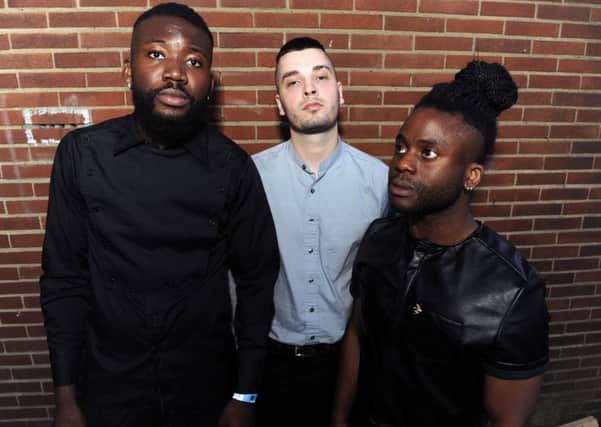Half of Edinburgh’s musicians suffering from noise protests


City leaders have vowed to take action after it emerged that 42 per cent of venues had also run into trouble over the course of 12 months. They have pledged to alter a controversial rule which means live music must be “inaudible” from all venues in neighbouring homes in Edinburgh.
A proposed change would mean council officers would have to prove live music is causing a persistent “nuisance” to neighbours before a complaint is pursued.
Advertisement
Hide AdAdvertisement
Hide AdThe council has signalled a major rethink over its support for the live music industry after the Edinburgh University study found the city’s scene was worth £40 million to the economy.
The research, the first of its kind to be carried out in the city, also revealed that the total average spend by a music fan in the city is £1120 a year.
But the researchers behind the Edinburgh Live Music Census say the current rules are having a “chilling” effect on gigs and are acting as a “handbrake” on the development of the city’s live music scene.
More than 23,000 live music events were staged across 267 venues in a year. The city council insists only 64 formal complaints were made between April 2014 and June of this year.
However 44 per cent of musicians who took part in the survey said their gigs had been affected by noise problems, while one in three complaints to the council was said to have led to a venue scrapping live music altogether.
Separate research conducted by a leading music venues campaign group found existing council policy - which regards amplified music as a potential “noise nuisance” - was loaded against gig organisers.
The Music Venues Trust (MVT) has recommended new council-wide policies are introduced which are “more sensitive to Edinburgh’s position as both a densely-populated city and a world-class cultural city.”
A taskforce of council officials, venue managers and promoters was formed last year following a spate of incidents which sparked claims Edinburgh’s rules were among the most restrictive for a city anywhere in the world.
Advertisement
Hide AdAdvertisement
Hide AdOne current rule, which has been in place for a decade, means council officers are obliged to launch an investigation if just one person complains that music can be heard.
Many venues have pulled the plug on long-standing nights or banned amplified gigs rather than risk losing a licence.
The MVT report on the city found that “venues that have been operating for many years can suddenly be faced with a real threat to their continued existence due to one complaint from a nearby resident.”
A report published today by the city council said there was a need to ensure that noise complaints could still be made while looking at a “fairer way” on whether they are pursued and upheld.
Key factors could include whether problems are being experienced on a regular basis, whether neighbours are being disrupted in the early hours of the morning and the importance of a particular event to the city, such as during the Edinburgh Festival.
However the Music Venues Trust report states: “There is a prevailing sense of injustice amongst the art community that the ‘indulgence’ shown during the festival season is incompatible with the attitude towards year-round arts providers.
“Addressing the current imbalance to offer a more supportive approach to the venues and artists who live and work in Edinburgh will create a sustainable music offer which will benefit the city both artistically and economically.”
Norman Austin Hart, the council’s vice-convenor of culture, said: “There has definitely been an issue over amplified music in Edinburgh. There’s no point in the council saying that there hasn’t.
Advertisement
Hide AdAdvertisement
Hide Ad“The inaudibility clause has been policy for 10 years, but there’s enough of a case to look at it again. We can’t just hide behind it.
“There’s been a tendency for the council to say that there hasn’t been a problem and that all complaints have been resolved without anyone losing a licence.
“What that conceals is the fact that 44 per cent say they have been personally restricted over some form of noise complaint. That tells us is there is a problem.
“The live music venue operators and performers who make up the Edinburgh music scene help to create £40 million of spend.
“I believe it is important we listen to the concerns of this community and address the issues being raised in order to sustain Edinburgh’s cultural vibrancy.”
Dr Adam Behr, one of those to work on the Edinburgh University research, said: “Our research shows high levels of engagement from the city’s audiences and a driven community of musicians.
“Nevertheless, the inaudibility clause appears to have a chilling effect on provision.
“Dialogue between the different parts of the council, venues and musicians is a crucial factor in unlocking the further potential of Edinburgh’s year round music scene.”